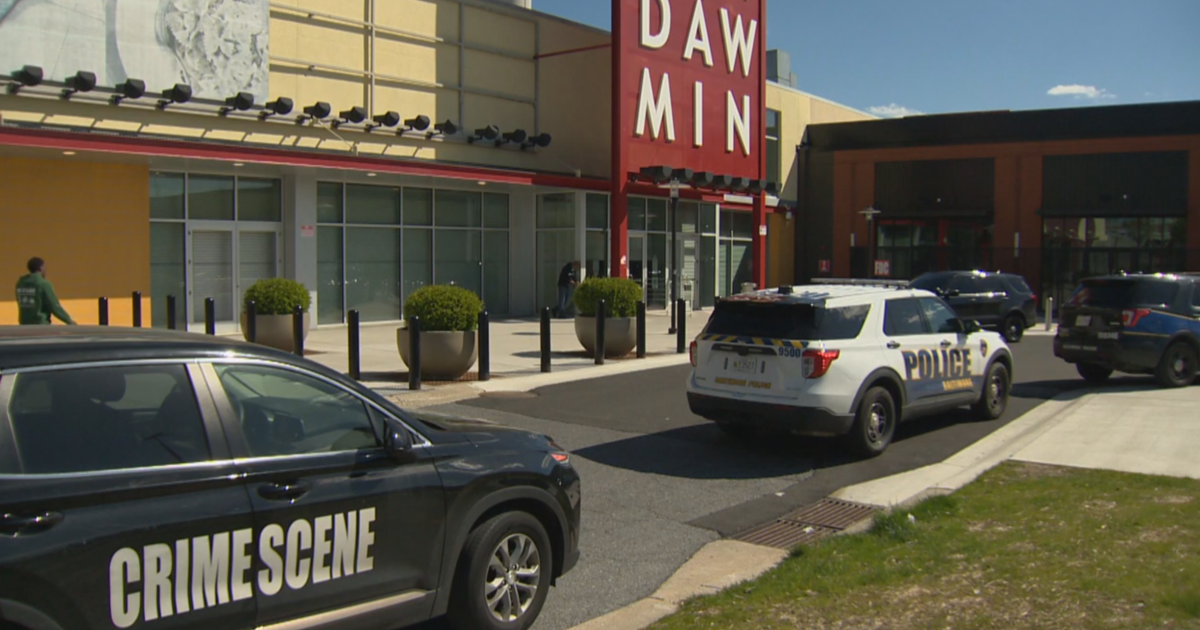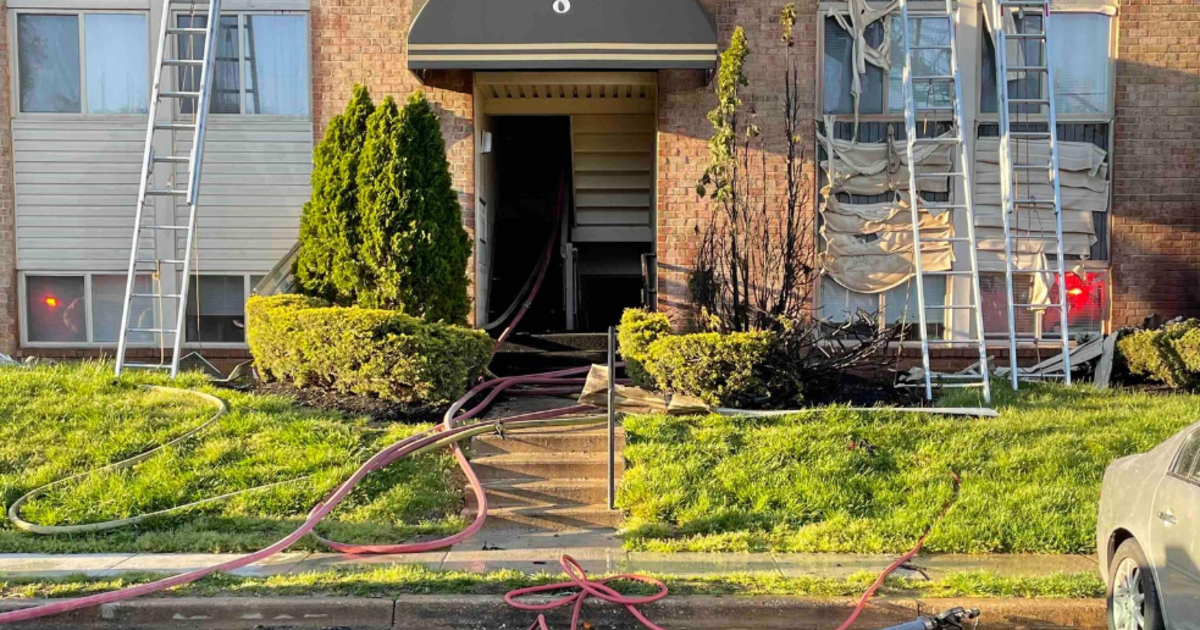Reversing A Stroke: A Maryland Woman's Experience With A Critical Breakthrough
BALTIMORE (WJZ) -- Each day for Kristin Ernst is a day to live.
"I am here," Ernst says, beaming. "Alive and walking and talking and just being able to live my life normally."
That's not normally the story you'd expect to hear from someone who suffered a surprise stroke.
Ernst, a hardworking wife and mother, now sees life through cool Chesapeake-tinted glasses after one fateful June morning earlier this year.
"It was a Friday morning of Father's Day weekend. I woke up and I went to the ladies' room and I apparently started to have a stroke," she said.
It took her some time to realize what exactly was happening to her body.
"I went back into my room and just sat on my bed," she recalled. "I was just sitting there. I couldn't formulate what I needed to do next. and I couldn't' really do anything. I couldn't do anything."
She sat on her bed, frozen and smiling eerily for 15 minutes until her husband, Rich, approached their bedroom to make sure she was awake for a meeting on her calendar.
"[My husband] saved my life. He and Dr. [Dheeraj] Gandhi saved my life," Ernst said.
With no other warning signs, Rich Ernst said he was only slightly suspicious of his wife's restlessness the night before.
His swift 911 call whipped into the blades of the helicopter that ferried his wife to the University of Maryland Medical Center, home of the elite Comprehensive Stroke Center.
That is where neuroradiologist Dr. Dheeraj Gandhi was waiting. A highly skilled specialist familiar with delicate issues of the brain and spine, Dr. Gandhi was prepared to operate on Ernst with a newer therapy.
Every 40 seconds, someone in the U.S. suffers a stroke, according to Dr. Gandhi, and every four minutes someone dies from a stroke.
It's no secret that Maryland is home to numerous best-in-class medical centers, including the state-of-the-art Comprehensive Stroke Center, which ensured Ernst got the best medical care available.
In 2020, the neurocritical unit at UMMC treated 405 patients suffering from non-bleeding stroke and another 245 patients for stroke caused by bleeding in the brain.
"We have the resources and the manpower to deal with some of the most complex types of stroke cases that are out there. If you have an emergency like this, hospitals like the University of Maryland offer a big hope," Dr. Gandhi said.
Ernst suffered what is known as ischemia, a non-bleeding stroke.
"For every minute that ischemia remains unresolved, a human loses up to 1.9 million neurons, 1.9 million brain cells," Dr. Gandhi said.
Both Ernst and her husband were amazed by the teamwork it took to get her into surgery less than an hour from the time her stroking began.
"They wheeled me in and did an MRI and they could see that I was stroking. They had pictures of my brain and they sent that to Dr. Gandhi on his phone," Ernst recalled. "'[Someone asked Dr. Gandhi] 'Are you available to operate on her?' And [he said], 'Absolutely, send her right now.'"
Saving a life when someone has suffered a stroke requires quick-thinking. Doctors must act fast.
Research reviewed by WJZ lists stroke as one of the leading causes in adult disability and death.
Ernst, a healthy woman who runs half-marathons, never saw her stroke coming.
"It can happen to anybody," she said.
Now, a fast and innovative stroke treatment is improving the outcomes doctors can achieve when someone has suffered a stroke.
"Thrombectomy is actually one of the highly effective therapies that has become available in recent times," Dr. Gandhi said. "The impact of thrombectomy cannot be overstated."
Neurocritical teams at UMMC have been successfully performing thrombectomies since the early 2000s.
"We puncture with a very small needle in the femoral artery [ and] navigate a small plastic tube, called a catheter. We take pictures, confirm where the clot is [and] now we can very rapidly get up there and either material [like] little stints on a wire. We can put it in and then, we can move them, and we can pull the clot out with them. [We can also] use a suction or a vacuum like device and extract the clot out," Dr. Gandhi said.
Prior to her stroke, Ernst never knew such a treatment existed. She's not alone.
So many others don't know about thrombectomies. Yet UMMC performs up to 170 of those procedures a year.
While it isn't a new therapy, it has gained more and more public exposure in recent years.
"The change happened about in 2015 [when] seven studies came out that demonstrated that patients that have thrombectomy tend to do a lot better than those that don't have it," Dr. Gandhi recalled.
A typical procedure can be done in the same amount of time it takes you to catch a nap or walk your dog.
"I don't even have a scar; I didn't even have a scar when I left the hospital," Ernst said. "They go in and put this little machine up through my body and go in and drain the clot. He went in six different times to do that, but it was so not invasive."
While Ernst is still working to regain some of her motor skills, such as writing, Dr. Gandhi called those deficits "minor" and said her procedure was a success.
Ernst was on her feet and walking three miles the same day.
"It was a miracle, really," she said.
Dr. Gandhi encourages all his patients to keep track of their risk factors: diet, exercise, high blood pressure and elevated cholesterol levels. Yet Ernst's case proves that being healthy doesn't necessarily protect you.
"I have risk, but so does everybody else, and I'm not going to let it affect the way I live my life now. I'm blessed to be here. and I try to do all the right things I'm still working out, and I'm' eating healthy," she said.
Ernst is correct -- all of us carry some level of risk when it comes to having a stroke.
Dr. Gandhi diagnoses race as a risk factor, too. He says the African American and Hispanic communities are nearly twice as likely to suffer stroke.
"If a stroke happens in African American individuals, they are also more likely to die from stroke unfortunately," Dr. Gandhi said.
Since her recovery, Ernst is more unhurried and gentle around her family. Her husband said it's more difficult now to playfully ruffle her feathers.
"[She is} a lot more laid back," he said. "Typically I am pretty good at getting her going a lot of times...and she doesn't bite, and that's a little frustrating for me."
It's not something Ernst would change if she had to go through the ordeal all over again. The traumatic moments of that fateful day brought the couple closer together.
"[Rich is] my hero. He saved my life and he's been with me every step of the way," Ernst said.
Her husband said despite the worries weighing him down the morning after his wife's surgery, he was pleasantly surprised to find her recovery was nearly flawless.
"I sat down in the chair, the room was dark. I'll never forget. I was there for about 15 minutes and she rolled over and looked at me and goes, 'Good morning, sweetie. How are you?' And I'm like, 'Holy cow.' I was like, 'I'm great, a lot better now," Rich Ernst said.
Ernst might have swapped marathons for a few miles at a time, but now she's using her brush with death to educate others about strokes.
"I hope that this helps other people know that anyone can have a stroke at any time. [I want] people to know the signs to lookout for," she said. "I hope Dr. Gandhi is on the other end of it."
To learn more about stroke and the thrombectomy treatment, visit the University of Maryland Medical Center's website.



